Meet the Cohort
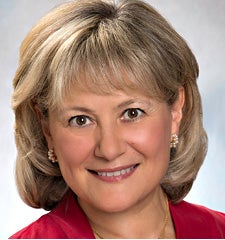 Elena Aikawa, MD, PhD
Elena Aikawa, MD, PhD
Professor, Brigham and Women’s Hospital
Elena Aikawa is professor of medicine at Harvard Medical School and Naoki Miwa Distinguished Chair in Cardiovascular Medicine at Brigham and Women’s Hospital (BWH). She is also co-director of the Center for Interdisciplinary Sciences, founding director of the Heart Valve Translational Research Program, and associate head of section of Cardiovascular Life Sciences at BWH. Aikawa is a passionate advocate for the early imaging and treatment of calcific aortic valve disease. Her research program, which has been continuously supported by NIH funding, focuses on the development of new therapies to prevent, treat, and cure calcific aortic valve stenosis, a disease that currently has no treatment options other than valve replacement. She was at the forefront in the discovery of inflammation-dependent mechanisms of cardiovascular calcification. Her studies contributed to the discovery of calcifying extracellular vesicles (exosomes) as a precursor of microcalcification. She holds editorial positions at the Cardiovascular Research, Circulation Research, Journal of Extracellular Vesicles, PLoS ONE, and Arteriosclerosis Thrombosis and Vascular Biology.
How has mentoring impacted your own career?
Mentoring has made me more inclusive, more patient, more flexible, and more kind. I have become a good listener and better communicator.

Deepsing Syangtan, PhD
Harvard Medical School
Postdoctoral Research Fellow
Research Interest: Host-microbe interactions
Deepsing is interested in discussing:
- Preparing for career pathways in industry and academia
- Balancing work and family life
- Adapting to unanticipated changes

Khaled Tighanimine, PhD
Harvard T.H. Chan School of Public Health
Postdoctoral Fellow
Research Interests: Cancer, cellular biology, and metabolism
Khaled is interested in discussing:
- Transitioning to a faculty position
- What skills are needed prior to becoming an independent researcher
- Which country he could fulfill his goals in after completing his postdoc

Yu Yong, PhD
Beth Israel Deaconess Medical Center
Postdoctoral Fellow
Research interest: Neuroscience
Yu is intersted in discussing:
- Strategies for professional development
- Career pathways beyond academia
- Networking
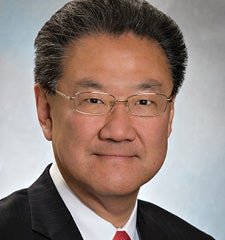 Masanori Aikawa, MD, PhD
Masanori Aikawa, MD, PhD
Professor, Brigham and Women’s Hospital
Masanori Aikawa serves as director of the Center for Interdisciplinary Cardiovascular Sciences (CICS) at Brigham and Women’s Hospital (BWH). His research interests include the pathogenesis of atherosclerosis and metabolic disorders, macrophage biology, and the pro-inflammatory role of dyslipidemia. Aikawa’s ultimate goal is to translate basic research findings into clinical practice through multidisciplinary efforts. His role as founding director of CICS represents this goal, where explorations for new therapeutic targets for cardiometabolic diseases are carried out in transpacific collaboration with Kowa Company, Ltd. a Japanese pharmaceutical company. Aikawa also has a research laboratory in the Center for Excellence in Vascular Biology at BWH, primarily supported by grants from the National Institutes of Health and the American Heart Association, where he studies novel triggering mechanisms of macrophage activation in the contexts of atherosclerosis and metabolic disorders. He completed his clinical training at Juntendo University School of Medicine, in Tokyo, Japan, and began his initial research at the University of Tokyo.
What are you looking forward to as a mentor this year in the program?
I look forward to exchanging experiences and thoughts between my mentees and myself as a mentor. Such two-way traffic is important for both sides. It gives mentees opportunities to systematically think of their strategies and future directions. It also helps a mentor further develop her/his skills as an efficient educator.

Naomi Goldman, PhD
Harvard Medical School
Postdoctoral Fellow
Research Interest: Immunology
Naomi is interested in discussing:
- Building a network
- Transitioning to a faculty position
- Teaching careers

Yue Liu, PhD, DBA
Boston Children’s Hospital
Research Fellow
Research Interest: Oncology
Yu’e is intersted in discussing:
- Transitioning from academia to industry

Fatima Mostefai, PhD
Beth Israel Deaconess Medical Center
Postdoctoral Research Fellow
Research Interests: Viral genomics, virology, bioinformatics, high-throughput sequencing, multi-omics, evolutionary biology, unsupervised machine learning, pandemic preparedness, HIV integration, and viral reservoir dynamics
Fatima is interested in discussing:
- How to secure fellowship funding and the transition to an independent faculty role
- How to build a virology-focused bioinformatics program
- How to find funding that lets her ideas in viral genomics grow

Laura Perna, PhD
Brigham and Women’s Hospital
Postdoctoral Research Fellow
Research Interest: Neuroscience
Laura is interested in discussing:
- How to develop skills for empathetic mentorship
- How to foster dynamic mentorship networks
- Career paths
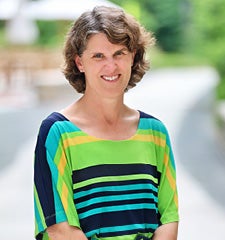 Sarah Berry, MD, MPH
Sarah Berry, MD, MPH
Associate Professor, Hebrew Senior Life
Sarah Berry is a geriatrician and clinical researcher at the Hinda and Arthur Marcus Institute for Aging Research and Beth Israel Deaconess Medical Center. Her primary research focuses on injuries in older adults, particularly in nursing homes. Much of her research has focused on the link between medications and adverse outcomes, with an emphasis on understanding the safety and efficacy of medications in older adults who have multimorbidity. Berry’s current funding includes a clinical trial to compare the effectiveness of different care models on rates of injurious falls in patients receiving post-acute care in a nursing home, as well as funding from the National Institute on Aging to conduct large, observational studies in nursing home residents.
What are you looking forward to as a mentor this year in the program?
I’m looking forward to meeting new investigators with diverse research interests. I am also looking forward to learning from the group.

Giulia Cenci, MD
Beth Israel Deaconess Medical Center
Postdoctoral Research Fellow
Research Interest: Neurology
Giulia is interested in discussing:
- Residence
- Balancing work and family life
- Career pathways in industry

Inès Fenniri, MD, MSc
Boston Children’s Hospital
Research Interest: Pediatric ophthalmology
Inès is interested in discussing:
- Becoming board certified in the U.S.
- Matching for a fellowship/residency in the U.S.
- Faculty positions

Zhaotao (Sophie) Gu, MD, PhD
Brigham and Women’s Hospital
Postdoctoral Research Fellow
Research Interest: Cardiovascular medicine
Sophie is interested in discussing:
- How to transition to a faculty position
- Career pathways in industry
- Life outside of work

Alfonso Rodriguez Espada, MD
Beth Israel Deaconess Medical Center
Research Fellow
Research Interests: Coagulation/hemostasis, genomics, and biostatistics
Alfonso is interested in discussing:
- Career pathways in industry
- Research while doing medical residency
- Masters or PhD options when doing medical residency
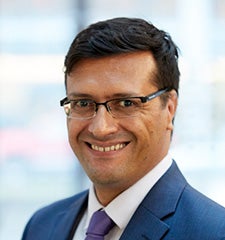 Jorge Chavarro, MD, ScD
Jorge Chavarro, MD, ScD
Associate Professor, Harvard T.H. Chan School of Public Health
Jorge Chavarro is associate professor of nutrition and epidemiology at the Harvard T.H. Chan School of Public Health, and associate professor of medicine at Harvard Medical School. His research is focused on understanding how nutrition and lifestyle impact human reproduction from pre-conception and throughout life. He conducts research aimed at understanding how different nutritional and metabolic factors influence fertility, in women and men, as well as treatment outcomes in couples undergoing assisted reproduction. In addition, he studies how nutrition and lifestyle impact health during pregnancy and how this impacts the health of mother and child after birth. Chavarro is also the principal investigator of the Nurses’ Health Study 3 – an ongoing prospective cohort of young professional women started in 2010 designed to investigate the role of lifestyle and biologic factors on women’s health. He also leads the nutritional component of the EARTH Study, an ongoing prospective cohort of couples undergoing infertility treatment at Massachusetts General Hospital. He has also served as a peer-reviewer for multiple NIH panels.
What are you looking forward to as a mentor this year in the program?
I am very much looking forward to meeting my group and having a months-long conversation into their hopes and plans for their careers. Every year that I have participated in the Career Catalyst program has brought together groups with different career paths, different scientific and clinical expertise, different plans for what they hope to accomplish during the program and in their careers afterwards. One of the things that I always find exciting is seeing the group realize that despite the many differences they may identify between them, there are a lot more commonalities between them and how these relate to pursuing an academic career.

Anil Upreti, PhD
Schepens Eye Research Institute of Massachusetts Eye and Ear Infirmary
Research Fellow
Research Interests: Ophthalmology, genomics, and data science
Anil is interested in discussing:
- Career pathways in biotech and big-pharma, including the transition from academia to industry consulting
- Strategies for translating multi-omic discoveries into therapeutic pipelines within biotechnology and pharmaceutical companies
- Balancing a high-impact research career with an active personal and social life

Sakshi Agarwal, PhD
Massachusetts General Hospital (Ragon Institute)
Research Fellow
Research Interest: Immunology
Sakshi is interested in discussing:
- Grant writing and funding strategies for early-career researchers
- Career pathways beyond academia
- Building academic-industry collaborations

Jeysson Sanchez-Suarez, PhD
Schepens Eye Research Institute of Massachusetts Eye and Ear Infirmary
Research Fellow
Research Interest: Drug development
Jeysson is interested in discussing:
- Transitioning to a faculty position
- Career pathways in industry
- Getting philanthropic funding

Shi Su, PhD
Brigham and Women’s Hospital
Research Fellow
Shi is interested in discussing:
- Transitioning to a faculty position
- Volunteer opportunities
- Clinical experience
William Mair , PhD
, PhD
Professor, Harvard T.H. Chan School of Public Health
William Mair is a professor of molecular metabolism, and director of the Harvard T.H. Chan Healthy Aging Initiative. The Mair lab studies mechanisms that mitigate the risks of aging, with a focus on metabolic flexibility and how changes to food intake can impact the aging process. The lab studies how nutrient and energy sensors in cells become dysfunctional with age, leading to metabolic inflexibility and acerated aging. Mair’s work aims to develop therapeutics that maintain healthy metabolic function, thereby enabling our bodies to process the food we eat effectively as we age and prolonging healthy aging. His lab is driven by the central questions: Why are we more likely to get chronic diseases when we are old than when we are young? What goes wrong in cells and tissues to increase overall disease risk, is this decline inevitable, or can we reverse it to bring healthy years to the elderly? Mair received his BSc in genetics and PhD in biology from University College London, and completed his postdoctoral training at the Salk Institute for Biological Studies in La Jolla, CA. He is an elected member of the Academy for Health & Lifespan Research, and has won numerous awards for his work on aging and geroscience, including the American Federation Breakthrough in Gerontology Award, the Glenn Medical Foundation for Medical Research Scholar Award, and the Ellison Medical Foundation New Scholar in Aging Research Award.
How has mentoring impacted your own career?
I have had excellent mentors, and not so excellent mentors, and both have had a profound effect on my career in positive and negative ways. Mentoring is a learned science and one that, if done well, can transform careers. I know that without many champions and mentors I would have given up a long time ago, and I see paying that forward as one of the best parts of my job and the most rewarding.

Arvind Pandey, MD
Brigham and Women’s Hospital
Instructor
Research Interests: Basic and translational vascular biology, and vascular medicine
Arvind is interested in discussing:
- Work/life balance
- How to navigate career/professional advancement and promotion

Ilona Sviezhentseva, PhD
Dana-Farber Cancer Institute
Postdoctoral Fellow
Research Interests: Leukemia biology, kinase signaling, and translational research
Ilona is interested in discussing:
- Transitioning from postdoctoral research to an independent academic position
- Career pathways in biomedical core facilities and technology development
- Strategies for balancing scientific career and family life

Anie Day Alindogan, PhD
Beth Israel Deaconess Medical Center
Postdoctoral Research Fellow
Research Interest: Cancer/antibody
Anie Day is interested in discussing:
- Navigating immigration/visa challenges as an international scholar
- Balancing work and family life
- Effective communication and relationship-building with mentors

Sabina Stefan, PhD
Dana-Farber Cancer Institute
Research fellow
Research Interest: Computational biology
Sabina is interested in discussing:
- Transitioning to a faculty position
- Exploring options in industry
- Starting a family
Josiemer Mattei, PhD, MPH, FAHA
PhD, MPH, FAHA
Associate Professor, Harvard T.H. Chan School of Public Health
Josiemer Mattei is the Donald and Sue Pritzker Associate Professor of Nutrition and Director of the Nutrition Research, Culture, and Equity (NURTURE) Program at the Department of Nutrition at the Harvard T.H. Chan School of Public Health. She investigates dietary, metabolic, and psychosocial determinants of cardiometabolic conditions, as a framework to elucidate and reduce health disparities among racial/ethnic minoritized groups and underserved populations. Her work applies an equity-centered transdisciplinary lens using mixed-methods, observational studies, and dietary trials, through projects in the United States, Puerto Rico, and Latin America, including the PROSPECT cohort, the PRECISION clinical trial, and the WELCOME community intervention, and long-standing collaborations with the Boston Puerto Rican Health Study and the Hispanic Community Health Study/Study on Latinos. She promotes evidence-based policy and programs for better access to healthy, accessible foods and cardiometabolic health aligned with traditional cultural values and environmental sustainability. She has received multiple accolades for her research, mentoring, and public health work.
What are you looking forward to as a mentor this year in the program?
Twenty years doing research and practice in public health and health sciences have shown me all the possible ups and downs of this career. I want to share them with you so that you don’t feel alone in this journey, learn from my successes and my (so-called) failures, and have a smoother career full of joy and productivity.

Philip Yeung, PhD
Boston Children’s Hospital/Harvard Medical School
Research Fellow
Research Interests: Cancer immunoregulation and metabolism
Philip is interested in discussing:
- Transitioning to a faculty position
- Balancing work and family life
- Establishing research collaboration

Mahnum Shahzad, PhD
Harvard Pilgrim Healthcare
Instructor
Research Interests: Pharma policy and cancer
Mahnum is interested in discussing:
- Building a funding portfolio
- Building a network
- Time management

Cameron Wiley, PhD
Harvard T.H. Chan School of Public Health
Yerby Postdoctoral Fellow
Research Interests: Psychophysiology and health disparities
Cameron is interested in discussing:
- Transitioning to a faculty position
- Work/life balance
- Forming healthy and sustainable relationships with mentees

Celia Wafa Ayad, PhD
Harvard Medical School & Beth Israel Deaconess Medical Center
Postdoctoral Research Fellow
Research Interests: Deep learning for biology, and vaccine research
Celia is interested in discussing:
- Transitioning to a faculty position and strategies for building a competitive application
- How to navigate hybrid careers that combine research, leadership, and science communication
- Grant writing strategies and how to secure independent funding as a postdoc
 Murray Mittleman, MD, DrPH
Murray Mittleman, MD, DrPH
Professor, Harvard T.H. Chan School of Public Health
Murray Mittleman is a physician and epidemiologist. He is a professor of epidemiology and the faculty director and chair of the Master of Public Health Program at the Harvard T.H. Chan School of Public Health. He also serves as MPI on two T32 research training programs—one in cardiovascular research and another in resuscitation science—both based at Beth Israel Deaconess Medical Center (BIDMC). Mittleman has expertise in designing observational etiologic studies and his research focuses on developing and applying epidemiologic methods. One of his major achievements was co-developing the case-crossover design. His applied research mainly aims to identify and understand physical, psychosocial, and chemical stressors—including cannabis—that may trigger acute cardiovascular events and influence long-term prognosis. Mittleman’s clinical work focuses on primary and secondary prevention of cardiovascular disease at the Cardiovascular Health and Lipid Center and the Advanced Hypertension Center; both located at BIDMC.
How has mentoring impacted your own career?
Working with great mentors has inspired me to pursue research questions that I find intriguing and fulfilling to study.

Anne Bischops, MD
Boston Children’s Hospital
Postdoctoral Fellow
Research Interests:Digital health, pediatric mental health, and non-communicable disease epidemiology
Anne is interested in discussing:
- Transitioning to a faculty position
- Balancing clinical work/research/life
- Non-academic career paths

Sofia Ines Volpi, MD
Beth Israel Deaconess Medical Center
Postdoctoral Research Fellow
Research Interests: AI in surgery, surgical education, and data-driven decision-making
Sofia is interested in discussing:
- Making the most of professional opportunities
- Enhancing productivity in research
- Building strong professional relationships

Chun-Ting Yang, PhD
Brigham and Women’s Hospital
Research Fellow
Research Interest: Pharmacoepidemiology
Chun-Ting is interested in discussing:
- Deciding whether to stay in academia and exploring options outside of academia
- How to balance publishing, networking, and job hunting
- What makes a strong faculty job application?

Säde Stenlund, MD, PhD
Harvard T.H. Chan School of Public Health
Research Associate
Research Interests: Psychosocial resources and health
Säde is interested in discussing:
- Health promotion
- The relationship between psychosocial factors and health
- Health entrepreneurship
 Marsha A. Moses, PhD
Marsha A. Moses, PhD
Professor, Boston Children’s Hospital
Dr. Marsha A. Moses is the Julia Dyckman Andrus Professor at Harvard Medical School and the Director of the Vascular Biology Program at Boston Children’s Hospital. She is internationally recognized for her significant contributions to our understanding of the biochemical and molecular mechanisms that underlie the regulation of tumor development and progression. Dr. Moses and her laboratory have discovered several inhibitors of these processes that function at both the transcriptional and translational level, some of which are being investigated for potential clinical use. She has complemented this mechanistic research with novel translational studies. Dr. Moses and her team have engineered novel, actively targeted, precision nanomedicines for the treatment of human cancers and their metastases. Named a pioneer in the field of Biomarker Medicine by the Journal of the National Cancer Institute, she has established a Proteomics Initiative in the Vascular Biology Program and has utilized its resources, including an extensive human biorepository, to discover and validate a number of noninvasive cancer biomarkers that can predict disease status and stage in cancer patients and that are sensitive and specific biomarkers of disease progression and therapeutic efficacy of cancer drugs. Some of these biomarkers are currently being utilized clinically and others are being tested in multiple clinical trials. These therapeutics and diagnostics are included in Dr. Moses’ significant patent portfolio composed of both US and foreign patents.
Dr. Moses’ basic and translational work has been published in such journals as Science, The New England Journal of Medicine, Cell, PNAS and Nature Communications, among others. She received a Ph.D. in Biochemistry from Boston University and completed a National Institutes of Health postdoctoral fellowship at Boston Children’s Hospital and at the Massachusetts Institute of Technology. Dr. Moses is the recipient of many NIH and foundation grants as well as numerous awards and honors. She has been recognized with both of Harvard Medical School’s mentoring awards, the A. Clifford Barger Mentoring Award and the Joseph B. Martin Dean’s Leadership Award for the Advancement of Women Faculty. Marsha has received the Excellence in Mentoring Award from the Postdoc Association of Boston Children’s Hospital and has also received their Award for Exceptional Mentorship. Dr. Moses has also received the Honorary Member Mentoring Award from the Association of Women Surgeons of the American College of Surgeons. She was the 2021 awardee of the American Association for Cancer Research Women in Cancer Research Charlotte Friend Lectureship.
Dr. Moses has been elected to the National Academy of Medicine, the National Academy of Inventors, the American Institute for Medical and Biological Engineering, as a Fellow of the American Association for the Advancement of Science and was recently elected to the American Academy of Arts and Sciences.
How has mentoring impacted your own career?
Mentoring aspiring young scientists and clinicians has been a priority of mine throughout my career. With that said, I have no doubt that I have learned as much from my mentees as they have from me. It continues to be a lesson in perseverance, diligence, and generosity of spirit.

Enoch Antwi, PhD
Dana-Farber Cancer Institute
Research Fellow
Research Interests: Gene therapy, cancer immunology and virology, and synthetic and systems biology
Enoch is interested in discussing:
- Transitioning to a faculty position
- Funding opportunities
- Frontier research topics

Assem Ashimova, PhD
Boston Children’s Hospital
Postdoc
Research Interests: Immunology and virology
Assem is interested in discussing:
- Transitioning to a faculty position
- Balancing work and family life
- Career pathways in industry

Rebecca Cooper, PhD
Boston Children’s Hospital
Postdoctoral Fellow
Research Interest: Psychiatry
Rebecca is interested in discussing:
- Making connections and collaborations
- Creating her own research program/niche
- Mentoring and leadership styles

Kevin Felt, PhD
Harvard Medical School
Postdoctoral Scholar
Research Interest: Structural biology
Kevin is interested in discussing:
- Optimizing his time as a postdoc at HMS
- How to pursue independent research hypotheses and generate intellectual property as a postdoc at HMS
- Career pathways in industry
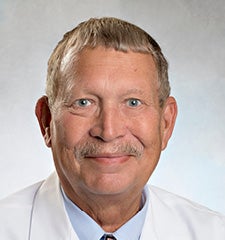 Andrew Onderdonk, PhD
Andrew Onderdonk, PhD
Professor, Brigham and Women’s Hospital
Andrew Onderdonk recently stepped down as director of clinical microbiology at Brigham and Women’s Hospital. He now works part-time teaching residents and mentoring young scientists. He has a lifelong interest in the role of microorganisms in human health and disease. He continues to collaborate with a number of investigators within Harvard University and its affiliates on various aspects of the human microbiome.
What are you looking forward to as a mentor this year in the program?
Helping our young scientists recognize and use all of the resources available to them. By sharing my experiences with them, I hope to provide answers to some of their questions about a scientific career path.

Sema Aygar, PhD
Massachusetts General Hospital
Postdoctoral Research Fellow
Research Interest: Alzheimer’s disease
Sema is interested in discussing:
- Transitioning to a faculty position
- Leading a lab
- Career pathways in industry

Jitendra Shrestha, PhD
Massachusetts General Hospital
Postdoctoral Researcher
Research Interest: Cancer biology
Jitendra is interested in discussing:
- Career pathways in industry
- Non-conventional scientific careers
- Balancing work and family life

Catarina Tristão-Pereira, PhD
Massachusetts General Hospital
Postdoctoral Researcher
Research Interest: Alzheimer’s disease
Catarina is interested in discussing:
- Finding funding opportunities
- Establish connections with mentors
- Transitioning to a faculty position

Sangwoo Park, PhD
Massachusetts General Hospital
Postdoctoral Fellow
Research Interests: CAR-T, glycobiology, and biophysics
Sangwoo is interested in discussing:
- Transitioning to a faculty position
- Grant writing
- Networking
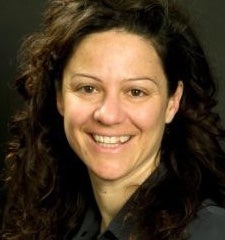 Paola Pedrelli, PhD
Paola Pedrelli, PhD
Associate Professor, Massachusetts General Hospital
Paola Pedrelli is associate director of the Depression Clinical Research Program at Massachusetts General Hospital and an associate professor of psychiatry at Harvard Medical School. She is a leading scientist in the development of digital tools for the long-term monitoring of depression, leveraging artificial intelligence and wearable and mobile sensors. Her commitment to improving clinical care for depression drives her research into innovative treatment methods. She has developed several face-to-face cognitive behavioral therapy approaches for depression, both in isolation and in conjunction with heavy episodic drinking. Additionally, she has conducted clinical trials on novel digital health interventions for depression. More recently, Pedrelli’s work has centered on investigating the effectiveness of ketamine-based treatments for depression and suicidal thoughts and behaviors, as well as the underlying mechanisms of these conditions. Her research has been supported by the NIH and DARPA, and various foundations and industry partners. Pedrelli has been invited to speak at national and international scientific meetings and has been featured in numerous media outlets. She has authored more than 70 peer-reviewed publications and chapters.
How has mentoring impacted your own career?
Mentoring has been instrumental in shaping my career, providing invaluable guidance and numerous opportunities for growth. Through the support of my mentors, I have navigated complex challenges and gained insights that have significantly enhanced my professional development. Recognizing the profound impact mentorship has had on my journey, I am committed to offering the same support and opportunities to others. By mentoring, I aim to empower individuals to achieve their potential and succeed in their careers. This reciprocal exchange of knowledge and experience enriches both the mentor and mentee, fostering a collaborative and supportive professional community.
Sanem Aslihan Aykan, MD, PhD
Massachusetts General Hospital
Instructor & Research Fellow
Research Interests: Neuroscience, neurorehabilitation, and pain
Sanem is interested in discussing:
- How to develop a well-integrated role across clinical practice, research, and education
- How to secure a permanent educational role in FAS, HMS, or graduate programs
- Navigating and finding grants

Andrew Burleson, PhD, AuD
Massachusetts Eye and Ear Infirmary
Postdoctoral Research Fellow
Research Interests: Cochlear implants and hearing loss
Andrew is interested in discussing:
- Transitioning into a faculty position
- Obtaining and diversifying funding sources to stay in academia
- Expanding my ability to generate new research ideas from existing data and literature

Wilhelm Sjöland, PhD
Massachusetts General Hospital
Postdoctoral Fellow
Research Interests: Gut microbiota, bile acids, and bioinformatics
Wilhelm is interested in discussing:
- Navigating career transitions
- When and how to pursue new opportunities
- Balancing research and personal life

Milana Kendrisic, PhD
Massachusetts General Hospital (Wellman Center for Photomedicine)
Research Fellow
Research Interest: Medical physics
Milana is interested in discussing:
- Transitioning to a faculty position
- Choosing a personal research subject (building a “brand” identity)
- Work/life balance
 Melissa Putman, MD, MMSc
Melissa Putman, MD, MMSc
Associate Professor, Massachusetts General Hospital
Melissa Putman is an adult and pediatric endocrinologist. She is an internationally recognized leader in the field of cystic fibrosis (CF) endocrinology and in the investigation of diabetes technology in understudied and high-risk diabetes populations. Putman serves as the director of the Massachusetts General Hospital (MGH) Diabetes Research Center, which oversees ground breaking clinical research in the field of diabetes. She is supported by grants from the NIH and Cystic Fibrosis Foundation. Her clinical expertise has fueled her research as a clinical investigator. As a junior faculty member, Putman developed the CF Endocrine Program within the (MGH) and Boston Children’s Hospital (BCH) CF Centers. In caring for people with CF, she has identified important research questions, created innovative clinical research protocols, and developed an international reputation as an expert in CF endocrine complications, including CF related diabetes (CFRD) and CF related bone disease. More recently, Putman has expanded her research to encompass novel interventions in the management of Type 1 and Type 2 Diabetes, with a focus on high risk and understudied populations. She has been nominated for an HMS Mentoring Award for the past three years and was the inaugural awardee of the annual Endocrine Attending of the Year by the endocrine fellows at BCH for excellence in teaching. She also received the 2020 J.F.P Ullman Award for Exceptional Mentorship from the BCH Postdoc Association. Putman currently servs as mentor for multiple junior faculty members at MGH and BCH.
What are you looking forward to as a mentor this year in the program?
Being a mentor has been one of the favorite parts of my job. It is so rewarding to be able to work with motivated junior investigators to help them reach their goals. I look forward to meeting new mentees in different fields of study and creating new mentorship networks at Harvard Medical School.

Karine De Mattos, DVM, PhD
Massachusetts General Hospital
Postdoctoral Research Fellow
Research Interests: Reproductive Biology
Karine is interested in discussing:
- Exploring career options
- Considering next steps in a career
- Increasing self-awareness

Aatira Vijay, PhD
Massachusetts General Hospital & Harvard Medical School
Instructor
Research Interests: Cardiovascular diseases, vascular biology, deep vein thrombosis and post-thrombotic syndrome
Aatira is interested in discussing:
- Transitioning to a faculty position
- Career pathways in industry
- Applying for NIH R-level grants

Juan De la Hoz Gomez, PhD
Massachusetts General Hospital
Research Fellow
Research Interests: Psychiatric genetics and precision medicine
Juan is interested in discussing:
- Transitioning to a faculty position
- Exploring teaching faculty options
- Strengthening collaborations

Yuchen Lei, PhD
Massachusetts General Hospital
Postdoctoral Research Fellow
Research Interests: IBD and immunology
Yuchen is interested in discussing:
- Career pathways in industry
- Building a network
- How to become a scientific editor
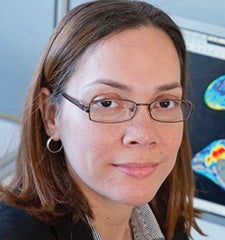 Yakeel T. Quiroz, PhD
Yakeel T. Quiroz, PhD
Associate Professor, Massachusetts General Hospital
Yakeel Quiroz-Gaviria is associate professor in the Departments of Psychiatry and Neurology at Harvard Medical School and Massachusetts General Hospital (MGH). She is also the director of the MGH Familial Dementia Neuroimaging Lab and the Multicultural Alzheimer’s Prevention Program. Additionally, she serves as director of the MGH Multicultural Assessment and Research Center and the MGH postdoctoral and predoctoral training programs in multicultural neuropsychology. Her research interests include brain imaging, genomics, early detection and preclinical biomarkers of Alzheimer’s disease and other dementias. She is the principal investigator of two NIH NIA R01 grants and co-investigator of both the Harvard Aging Brain Study and the Alzheimer’s Clinical Trials Consortium. Quiroz-Gaviria’s work has provided evidence of brain abnormalities in cognitively intact individuals at genetic risk for Alzheimer’s disease, decades before their clinical onset. Her findings have helped the field to re-conceptualize Alzheimer as a sequence of changes that begins decades before cognitive decline. She earned her master’s degree in cognitive neuroscience and PhD in clinical psychology from Boston University.
How has mentoring impacted your own career?
I believe that mentoring is a bi-directional process. My mentees have contributed to my personal and scientific growth. I encourage them to provide continued feedback and do my best to integrate their recommendations.
Prabhjot Kaur, PhD
Boston Children’s Hospital
Research Fellow
Research Interests: AI, ML, neuroImaging, and medical vision
Prabhjot is interested in discussing:
- Career pathways in industry
- Balancing work and family life
- Women in research

Navaneeth Krishna Rajeeva Pandian, PhD
Wyss Institute (Harvard Medical School)
Postdoctoral Research Fellow
Research Interests: Tissue engineering, vascular biology, thrombosis, and hemostasis
Navaneeth Krishna is interested in discussing:
- Transitioning to a faculty position
- Preparing for grants and fellowships
- Balancing work and family life

Jeswin Joseph, PhD
Harvard T.H. Chan School of Public Health
Postdoctoral Researcher
Research Interests: Molecular virology, virus-host interactions, and protein nanoparticles
Jeswin is interested in discussing:
- Navigating from postdoc to faculty positions
- The importance of networking in academia
- Grant preparation

Jamie Kraft, PhD
Harvard T.H. Chan School of Public Health
Postdoctoral Fellow
Research Interests: Gut microbiome and aging
Jamie is interested in discussing:
- Building an interdisciplinary network
- Bridging the gap between academia and industry
- Science communication
 Frederick Schoen, MD, PhD
Frederick Schoen, MD, PhD
Professor, Harvard Medical School & Brigham and Women’s Hospital
Frederick Schoen is professor of pathology and health sciences and technology at Harvard Medical School (HMS) and a cardiovascular pathologist. He was the executive vice‐chairman in the Department of Pathology at Brigham and Women’s Hospital (BWH) for more than 20 years, and more recently vice chair for faculty affairs. He received a BSE (materials and metallurgical engineering) from the University of Michigan, his PhD in materials science from Cornell University, and his MD from the University of Miami School of Medicine. Schoen’s original work broadly comprises biomaterials, cardiovascular pathology, and interventional/surgical pathology. His most fulfilling research focuses on native heart valve biology and valve replacement devices, calcification mechanisms in bioprosthetic heart valves and anti-calcification therapies, and tissue engineering. Schoen has led forward-thinking education and mentoring in healthcare innovation and translational biomedical engineering and faculty development activities at BWH and collaborating institutions (HMS, Harvard Catalyst, and the Harvard-MIT Division of Health Sciences and Technology).
How has mentoring impacted your own career?
I have benefitted greatly from both developmental and skills mentoring, and by having excellent professional role models. As I migrated from a predominantly engineering to a medical focus, these inputs were particularly important. For many years I have gained great satisfaction from working with my department colleagues to document their accomplishments and shepherd their promotions through the Harvard Medical School promotions process. As time progressed, I became interested in sharing what I have learned by developing programs based at BWH, HMS, and Harvard Catalyst to help young professionals optimize their mentoring relationships and to help established academics develop mentoring skills.

Maryam Kazemi, PhD
Harvard T.H. Chan School of Public Health
Postdoctoral Fellow
Research Interests: Reproductive endocrinology, genomics of human complex cardiometabolic and reproductive diseases, and precision medicine
Maryam is interested in discussing:
- Strategies for transitioning out of the postdoc phase and into permanent academic roles within Harvard or similarly competitive institutions — particularly for those hired from outside the system
- If an NIH K award is funded, what realistic options exist for securing the necessary institutional commitment for an instructor- or assistant professor-level appointment when salary or funding is not guaranteed at Harvard schools?
- How to strategically plan for an R01 application—timing, scope, and team-building—while on a K award, and how to ensure alignment with long-term independence

Sebastian Sahli, MD
Beth Israel Deaconess Medical Center
Senior Research Fellow
Research Interests: Anemia, point-of-care coagulation management, and ECMO

Noga Arwas, MD
Boston Children’s Hospital
Clinical Fellow
Research Interest: Genetics of pulmonary diseases
Noga is interested in discussing:
- Career development and personal growth
- Becoming an independent researcher
- Building collaborations and networks

Katja De Paepe, MD, PhD
Beth Israel Deaconess Medical Center
Assistant Professor
Research Interests: Hepatobiliary, and ontological and lymphatic imaging
Katja is interested in discussing:
- Securing research funding
- Building an international network and collaborations
- Balancing research, leadership, and clinical work with health and family
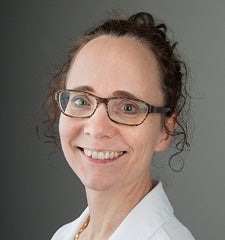 Veronique VanderHorst, MD, PhD
Veronique VanderHorst, MD, PhD
Associate Professor, Beth Israel Deaconess Medical Center
Veronique VanderHorst is associate professor of neurology at Harvard Medical School and staff physician in the Parkinson’s Disease and Movement Disorders Center at Beth Israel Deaconess Medical Center (BIDMC). In her current research, she integrates her clinical and neuro-anatomical/physiological experience to study connections and functions of brainstem and spinal circuitries that control muscle tone, posture, breathing and walking, in normal conditions and in disease models of dystonias, parkinsonism, and sleep apnea. She makes use of state-of-the-art chemogenetic and optogenetic technologies in combination with tract tracing and electrophysiology in animal models, while translational efforts include collaborative clinical-pathological and clinical studies. A major focus in her work is on translatable outcome measures. Her work has been funded by the National Institutes of Health, the Bachmann Strauss Dystonia and Parkinson Foundation, Center for Mind Brain Restoration, and the Goldberg Foundation. She earned her PhD in neuroscience from the University of Groningen in the Netherlands, was awarded a fellowship from the Royal Netherlands Academy of Arts and Sciences and completed a neurology residency training and movement disorders fellowship at BIDMC.
What are you looking forward to as a mentor this year in the program?
I’m looking forward to sharing my career adventures with the mentees. While a science background is often very different, we all wrestle with the same central questions related to career paths and work-balance decisions.

Pei Wang, PhD
Massachusetts General Hospital
Researcher
Research Interest: Neuroscience
Pei is interested in discussing:
- Transitioning to a faculty position
- Career pathways in industry

Chiara Mauri, PhD
Athinoula A. Martinos Center for Biomedical Imaging (Massachusetts General Hospital)
Research Fellow
Research Interest: Computational neuroimaging
Chiara is interested in discussing:
- Transitioning to a faculty position
- Time and priority management
- How to find your research niche

Minhae Cha, PhD
Massachusetts General Hospital
Research Fellow
Research Interest: Alzheimer’s disease
Minhae is interested in discussing:
- Career pathways
- Drug discovery
- Alzheimer’s disease

Courtney Bannerman, PhD
Massachusetts General Hospital
Postdoctoral Fellow
Research Interest: Ion channels as a possible pain therapeutic
Courtney is interested in discussing:
- Career options in industry
- Transitioning to a faculty position
- Creating collaborations in and outside the lab
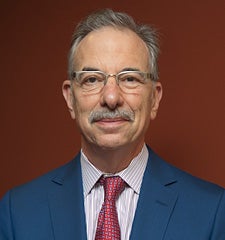 Bruce Zetter, PhD
Bruce Zetter, PhD
Professor, Boston Children’s Hospital
Bruce Zetter is the Charles Nowiszewski Professor of Cancer Biology at Harvard Medical School. Previously, he served as vice president for research and chief scientific officer at Boston Children’s Hospital. He is known for his research on cancer biology, diagnosis, and treatment. He currently works to find treatments for highly aggressive, metastatic cancers. He also serves as an advocate for young scientists and for improved academic-industry relationships.
What are you looking forward to as a mentor this year in the program?
I’m looking forward to getting to know more mentees and to exchange opinions and concerns about careers in science. Also, I’d like to keep us all focused on why we went into science in the first place and how to keep that sense of wonder and excitement.

Anne Goergen, PhD
Beth Israel Deaconess Medical Center
Postdoctoral Fellow
Research Interests: Adipose tissue and metabolic disorders
Anne is interested in discussing:
- Transitioning to a faculty position
- Balancing work and family life
- Financial stress (grants, supporting a group) in academic positions

Uday Aditya Sarkar, PhD
Dana-Farber Cancer Institute
Postdoctoral Research Fellow
Research Interests: Hematological malignancies and pre-malignant stages
Uday Aditya is interested in discussing:
- The future of academia and alternative career options
- The impact of AI in research and academic endeavors
- Strategies for job satisfaction and mitigation of work stress

Xinmin Qian, PhD
Harvard Medical School
Research Fellow
Research Interest: Neuro-immune-bacterial interactions within barrier tissues
Xinmin is interested in discussing:
- Transitioning to a faculty position
- Balancing work and life
- Career pathways in industry

Katarina Pinjusic, PhD
Dana-Farber Cancer Institute
Postdoctoral Fellow
Research Interest: Cancer immunotherapy
Katarina is interested in discussing:
- Career pathways in industry
- Balancing work and family life
- Transitioning to a faculty position


